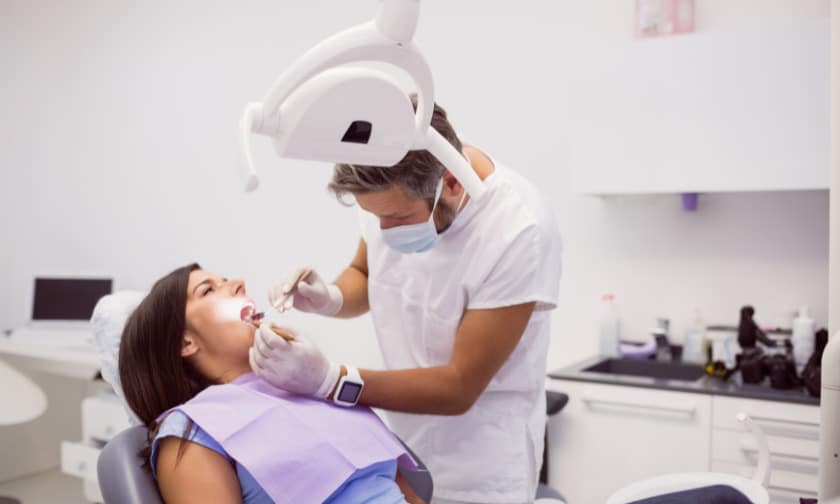Did you just get your wisdom teeth removed? Or if you get dental implants or any other oral procedure, you need to take certain precautions. During this time, your mouth is vulnerable, and there are different ways you can ease the pain and avoid infections. Oral surgery includes different procedures to treat injuries, defects, diseases, etc. The recovery process can take several days, but you can take the following steps to ensure a speedy recovery.
Recovery Strategies For Oral Surgery
-
Take It Easy
After your oral surgery make sure you get plenty of rest. In most cases, you will be given a sedative, so make sure you don’t operate heavy machinery. Also, make sure to avoid strenuous activities like exercise that may dislodge clots or cause bleeding. Make sure you don’t bend or lift anything heavy. Also, you can use extra pillows to elevate your head. Rest is an important aspect following oral surgery. Make sure you rest for two days following the procedure. Don’t engage in exercise or physical activity for two to three days after your surgery.
Your oral surgeon will give you specific instructions to follow. Make sure you follow them to prevent any infections. For instance, if your surgeon tells you to not brush the affected area, make sure you follow it; instead of brushing your teeth, you can gently wipe the area with gauze. Moreover, you can always swish a saltwater solution after every few hours or after every meal to prevent infections and remove any food particles.
-
Ice It
It’s normal for your face to swell or have bruises after your oral surgery. To reduce pain and swelling, you can apply ice to your jaw. You can apply it for 15 on one area and move it over. In case your swelling gets worse, make sure you visit the dentist right away.
-
Block The Blood
If you have some bleeding after your surgery, it shouldn’t last long. However, you can take the following steps to stop or slow down the flow. Gently bite on a folded gauze to reduce or stop bleeding. The bleeding from an oral surgery shouldn’t last more than 24 hours, if it does make sure you visit the dentist right away.
-
Guard The Clot
A blood clot is an important aspect of the healing process. The blood clot protects the bone during healing, and if the clot gets loose or comes out, your bone will be exposed, also known as a dry socket. There are different causes for a dry socket, and it can last for days & cause severe pain.
If you suck in or spit, sneeze, or cough a little too hard, it can dislodge the blood clot. Even hard, crunchy, or sticky foods can pull out or dislodge the clot. To ensure a successful recovery, you can take the following measures.
- Avoid straws
- Avoid smoking and tobacco
- Stick to Soft food
- Maintain proper oral hygiene
- Avoid drinking alcoholic or carbonated beverages
- Try not to spit as much
-
Keep An Eye On Your Diet
Make sure you follow a good diet to ensure a successful recovery. A few foods that are good to consume after your oral surgery are as follows.
- Soups, broths, and smoothies
- Yogurt or cottage cheese
- Mashed potatoes, cauliflower, avocado, or carrots
- Scrambled eggs
- Oatmeal
- Applesauce and other fruit or vegetable purees.
- Salmon
- Ice cream, pudding, and jello.
- Cooked cereals
- Refried beans
- Fruit smoothies and a protein shake.
- Also, stay away from being too hot, cold, tough, chewy, or spicy.\
Conclusion
If you just had your oral surgery, make sure you follow these tips. If you are wondering where you can get “the best oral surgery near me”, you can just visit the orthodontist in Marion and Asheville, NC. The dental team will help you through the process and ensure you have the best experience.

